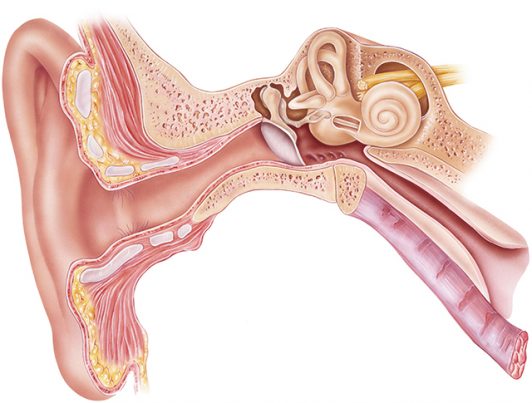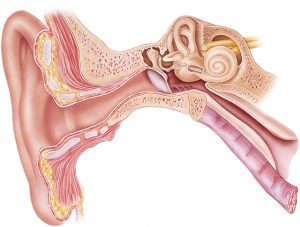
Meniere’s disease – causes, side effects and treatments at NaturalPedia.com
Thursday, May 17, 2018 by Michelle Simmons
http://www.naturalpedia.com/menieres-disease-causes-side-effects-and-treatments-at-naturalpedia-com.html

Meniere’s disease is a disorder of the inner ear. Some researchers believe that this disease is a consequence of constrictions in blood vessels like those that cause migraines, while others think that it could be a result of viral infections, allergies, or autoimmune reactions. Because Meniere’s disease appears to run in families, it could also be caused by genetic variations that cause abnormalities in the volume or regulation of endolymph fluid. Although this disease can develop at any age, it is more likely to develop in adults aged between 40 and 60. There are approximately 615,000 individuals in the U.S. that are diagnosed with Meniere’s disease and that 45,500 cases are newly diagnosed every year.

Known side effects of Meniere’s disease
The side effects of Meniere’s disease typically comes in attacks or episodes. These include the following:
- Dulled hearing in the affected ear/s, although the degree of hearing loss varies.
- Vertigo – This is dizziness with a spinning sensation. It can be quite severe and make you feel sick or vomit. Vertigo can develop with little or no warning. You may feel very dizzy and ill. You may need to go to bed until it goes away.
- Tinnitus – This is noise such as a ringing, roaring or buzzing that you can hear from inside the affected ear.
- Ear pressure – You may have a sense of fullness or pressure inside the ear.
- Loud noises may seem unpleasant and distorted.
An episode of Meniere’s disease may last from 20 minutes to several hours or two to four hours on average.
Body systems harmed by Meniere’s disease
The body system damaged by Meniere’s disease is the auditory system as it affects the ear.
List of foods or nutrients that prevent Meniere’s disease
There is no information on what foods or nutrients prevent Meniere’s disease. However, there are known nutrients that may help treat Meniere’s disease. These include vitamins B12, B3, and B1, and magnesium.
Treatments, management plans for Meniere’s disease
Even though there is no cure for Meniere’s disease, there are treatments available to help manage some of its symptoms. These include the following:
- Lifestyle changes – Because smoking and tinnitus were found to be associated with each other, quitting may help to reduce symptoms and soothe the effects. Managing stress and anxiety can also help.
- Medications for vertigo
- Middle ear injections – Some injections into the middle ear may improve symptoms of vertigo.
- Surgery – If other treatments have not worked, or if symptoms are severe, surgery may be needed. Surgery options include endolymphatic sac decompression, labyrinthectomy, vestibular nerve section, and vestibular rehabilitation therapy.
Natural remedies for Meniere’s disease include drinking plenty of water, reducing stress and anxiety, avoiding intake of caffeine and nicotine, keeping the blood pressure and insulin levels under control, avoiding a high sodium diet, limiting the consumption of sugar and MSG, and avoiding foods that cause inflammation.
Where to learn more
- 5 Warning Signs of Magnesium Deficiency
- Use Natural Remedies for Ear Infections
- Home Remedies with Garlic Quickly Relieve Ear Aches and Ear Infections
- Ear Candling is Effective and Safe for Cleaning the Ear Canal
- Ear Infections: Use a Home Remedy of Garlic Juice
Summary
Meniere’s disease is a disorder of the inner ear.
Meniere’s disease causes dulled hearing, vertigo, tinnitus, ear pressure, and pressure inside the affected ear.
Meniere’s disease can be treated by lifestyle changes, medications for vertigo, middle ear injections, and surgery.
Meniere’s disease can be remedied at home by drinking plenty of water, managing stress and anxiety, avoiding intake of caffeine and nicotine, keeping the blood pressure and insulin levels under control, avoiding a high sodium diet, restricting the consumption of sugar and MSG, and avoiding foods that cause inflammation.
Sources include:
Tagged Under: Tags: Meniere's disease





